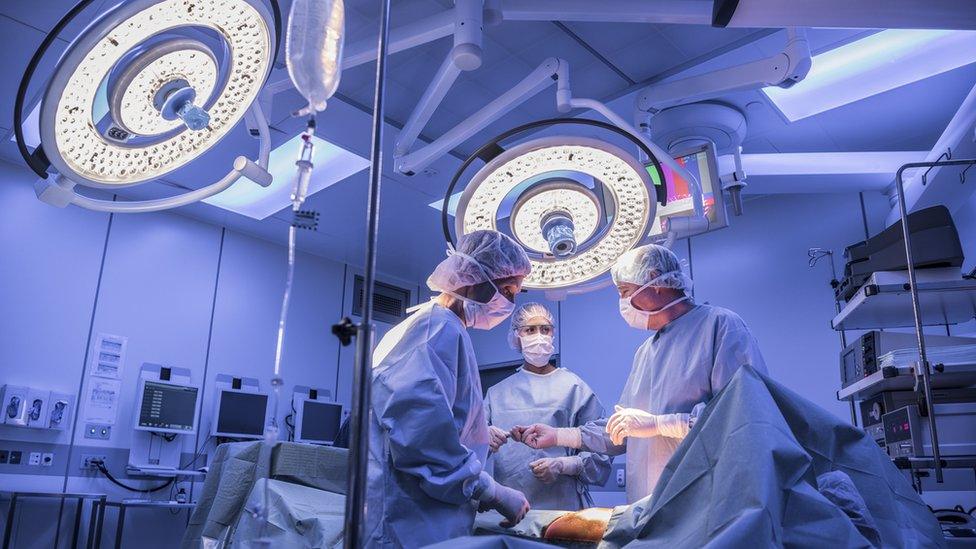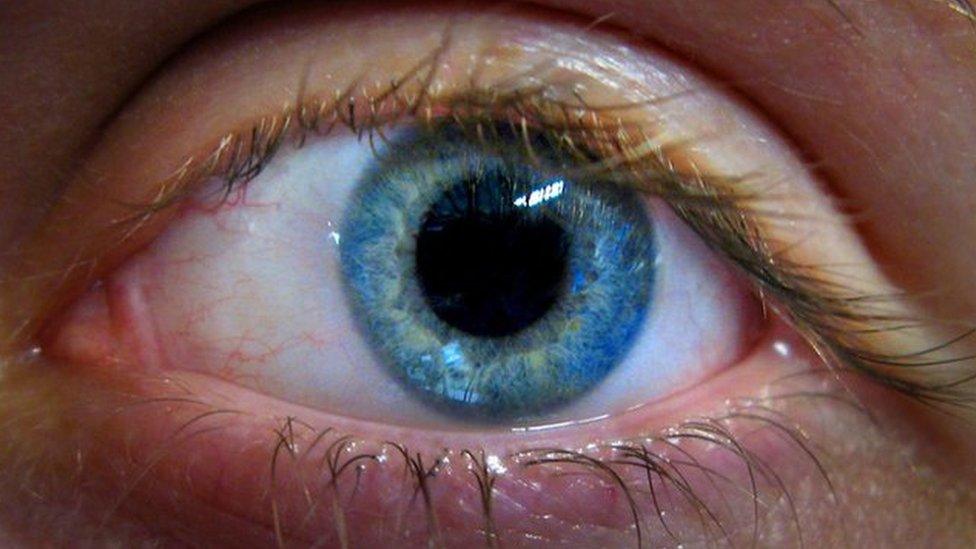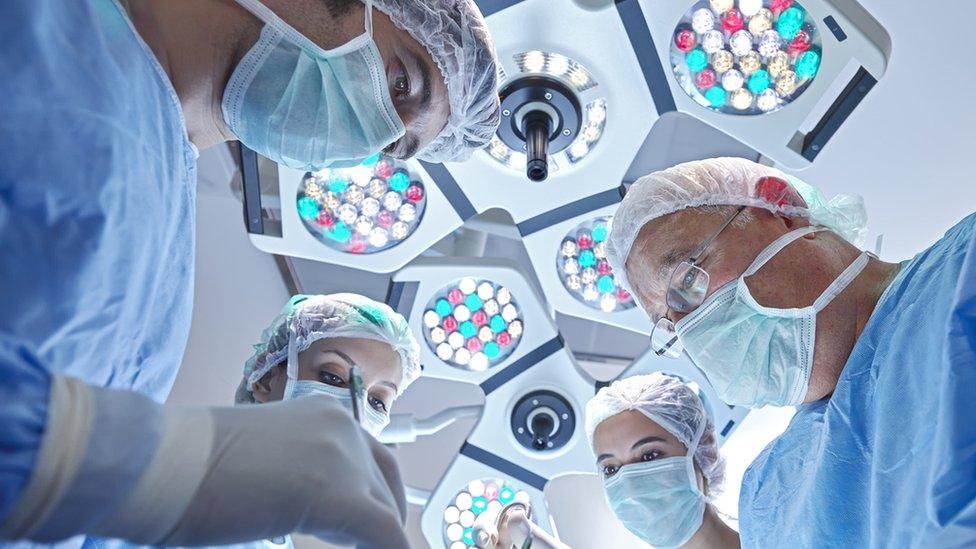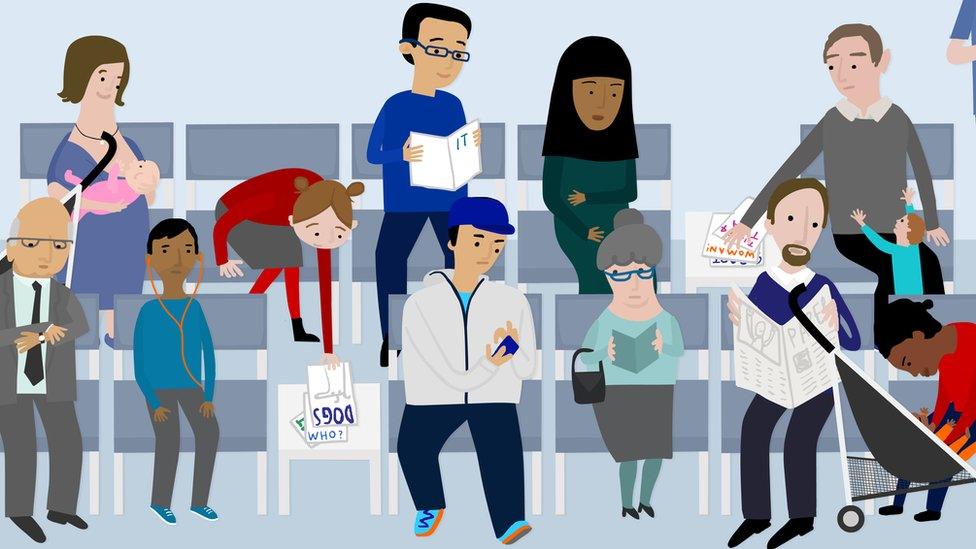NHS 'rationing leaves patients in pain'
- Published
- comments

Vital NHS operations and treatments are being increasingly rationed in England, leaving patients in pain, doctors say.
The treatments affected include hip and knee replacements and cataract surgery to help restore sight as well as drugs for conditions such as arthritis.
Such care is normally given routinely, but the British Medical Journal has found evidence it is being cut back.
The journal obtained data showing more doctors are having to resort to special appeals to get their patients treated.
Local health bosses have blamed the tighter restrictions on a lack of funding.
But medics and patients' groups said the restrictions being placed on non-emergency treatment were "unfair" and meant patients spent longer in pain or were going without treatment.

Cataract surgery is one of the procedures that doctors are seeking special requests to carry out
When care is not being funded on the NHS, doctors can use the the exceptional cases system to appeal to local health bosses to get the treatment for their patients.
It is normally associated with new drugs not yet available on the NHS, to pay for expensive treatments in unusual circumstances or to get care that there are legitimate restrictions on, such as cosmetic surgery.
But the BMJ has gathered evidence from clinical commissioning groups which shows the special requests are increasingly being used for vital non-emergency services.
Responses from 169 of the 209 clinical commissioning groups, which control local budgets, showed:
In 2013-14 there were just 49 requests made for hip and knee surgery, but by last year the figure had reached 899
Over the same period, the number of cataract appeals trebled to more than 1,000.
Overall the number of requests being made through the special cases route rose by 47% to 73,900
Just over half of all requests were approved
Patient: 'I'm left in pain waiting for drugs'
One patient who has been caught up in the squeeze is Helen Cole, from west London. She was diagnosed with rheumatoid arthritis 11 years ago.
She relies on a drug called rituximab, but it is not being routinely funded by her local health bosses so her doctor has to make a special request for it every six months.
This has led to delays in her getting the drug and gaps in her treatment. Last time, she had to wait 10 weeks to get her next treatment.
"I had a lot of pain in my joints and really big problems with fatigue. It can be really challenging day to day."
She said she finds the whole process "stressful" and believes it "makes no sense".
"The whole point of treating a disease like rheumatoid arthritis is to try to keep it under control at all times," she added.
How treatment is rationed
Exceptional requests for funding can be made by doctors when they believe their patients should get treatment that is not normally funded locally.
They make an appeal to a local panel who decide whether to allow the treatment.
This is done when a treatment is either not funded or where the patient does not qualify because their condition is not considered severe enough.
For example, for hip and knee replacements doctors use a scoring system to assess how much discomfort and lack of mobility a patient has.
By increasing the bar at which a referral for an operation is made the NHS can help restrict the numbers getting treatment.
Which treatments are most commonly requested as special cases?
Removal of skin tags
Cosmetic surgery
Varicose vein surgery
Plastic surgery
Fertility treatment
Mental health care
Cataract removal
Carpal tunnel syndrome (nerve damage to wrist)
Hip and knee surgery
Breast surgery
Is this a sign of a major problem?
Doctors said the trend was a clear indicator that care was being rationed.
For every case where an exceptional argument has been made, there will be plenty more where patients will have gone without care and their doctor has not appealed.
But it should also be seen in the context of the large number of non-emergency treatments that do take place - more than 15 million a year.

There are more than 15 million planned operations and treatments each year
Julie Wood, chief executive of NHS Clinical Commissioners, which represents CCGs, said despite seeing more patients than ever, the NHS was still struggling to keep up with demand.
"Unfortunately, the NHS does not have unlimited resources and ensuring patients get high-quality care against a backdrop of spiralling demand and increasing financial pressures is one of the biggest issues CCGs face.
"As a result there are some tough choices that have to be made, which we appreciate can be difficult for some patients."
But Stephen Cannon, of the Royal College of Surgeons, said local health managers were "unfairly and unnecessarily prolonging the time patients will spend in pain, possibly immobile and unable to carry out daily tasks or to work".
Helen Lee, of the Royal National Institute of Blind People, said restricting access to cataract treatment was a "false economy".
"Patients with cataracts are at risk of social isolation, depression, and fall-related injuries," she added.
- Published2 June 2017

- Published31 March 2017
